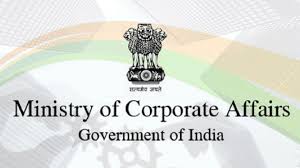What is Tax Audit? A Complete Guide for AY 2024–25
A tax audit is a critical aspect of ensuring that businesses and professionals comply with the taxation laws laid out by the Indian government. If you are wondering what is tax audit, it refers to the process of thoroughly reviewing a taxpayer’s financial records, books of accounts, and statements to ensure that the income and expenses reported comply with the Income Tax Act. For the Assessment Year (AY) 2024–25, understanding what is tax audit and the procedures involved is more important than ever. Whether you are a freelancer, a small or medium-sized business, or a large corporation, knowing the key aspects of tax audit can help you ensure timely compliance and avoid penalties. In this guide, we will explore what is tax audit, the procedures, and requirements for AY 2024–25, and how to avoid common mistakes during the process. When we ask what is tax audit, we are essentially referring to an examination conducted by a Chartered Accountant (CA) to verify whether a taxpayer’s financial records align with the provisions of the Income Tax Act. Specifically, Section 44AB mandates that businesses and professionals, under certain criteria, undergo a tax audit. The primary objective of a tax audit is to ensure that the financial statements provided by the taxpayer accurately reflect their income, expenses, and liabilities, and that taxes are paid according to these figures. A tax audit also helps prevent tax evasion, ensures transparency, and allows the government to verify the correct tax liability. It is essential to distinguish between statutory audits and tax audits. While statutory audits are mandated by the Companies Act, tax audits are specifically required under the Income Tax Act for businesses, professionals, and other entities based on specific turnover and income thresholds. Statutory Audit: Required by the Companies Act, applicable to companies and limited liability partnerships (LLPs). Tax Audit: Required under the Income Tax Act, applicable to certain businesses, professionals, and individuals meeting prescribed thresholds. Understanding what is tax audit is the first step in ensuring compliance and avoiding mistakes during the filing process. In order to understand what is tax audit, it’s important to know who is required to undergo a tax audit for AY 2024–25. The applicability of the tax audit depends on various factors such as turnover, profession, and whether the business is operating under a presumptive taxation scheme. Businesses: If a business has a total turnover exceeding ₹1 crore (₹50 lakh for businesses under the presumptive taxation scheme), it must undergo a tax audit. Professionals: Professionals such as doctors, lawyers, and consultants who have gross receipts exceeding ₹50 lakh will need to undergo a tax audit. LLPs and Companies: All Limited Liability Partnerships (LLPs) and companies are required to undergo a tax audit if their turnover exceeds the prescribed limits. It’s also important to understand the tax audit applicability for AY 2024–25 when operating under specific tax schemes such as presumptive taxation. This means businesses or professionals opting for the simplified tax scheme may still be subject to a tax audit if they cross certain limits. When undergoing a tax audit, one of the key components of the audit report is understanding the tax audit clauses. These clauses, which are found in the tax audit report format, provide auditors with specific guidelines to evaluate a taxpayer's financial disclosures. Form 3CA: Used when the business is already audited under the Companies Act. Form 3CB: Used when the business is not subject to statutory audits but still requires a tax audit. Form 3CD: Contains detailed clauses that require taxpayers to disclose: Detailed income breakdown. Business expenses. Exemptions and deductions claimed. These tax audit clauses ensure that the audit is thorough and that all relevant financial data is disclosed to the authorities. Ensuring that these clauses are followed correctly will help businesses avoid discrepancies and penalties. The guidance note on tax audit issued by the Institute of Chartered Accountants of India (ICAI) provides detailed instructions for conducting a tax audit. This guidance note is crucial for Chartered Accountants (CAs) as it outlines the best practices for conducting an audit and ensuring compliance with the Income Tax Act. The guidance note on tax audit also covers important aspects such as: The scope of the audit. Documentation and reporting requirements. How to handle discrepancies and non-compliance. Adhering to the guidance note on tax audit ensures that the audit process remains consistent and compliant with the law. Now that we understand what is tax audit, it's important to know how the audit process works. The tax audit procedure typically involves the following steps: Appointment of Chartered Accountant: A qualified Chartered Accountant (CA) is appointed to carry out the tax audit. Document Review: The CA reviews all financial records, including books of accounts, bank statements, sales invoices, and GST returns. Audit Report Filing: Once the review is complete, the CA prepares and files the tax audit report in the prescribed tax audit report format. Forms Involved: Form 3CA/3CB: These forms are used to report the tax audit results. Form 3CD: This form provides detailed disclosures of the taxpayer’s financial transactions. The tax audit procedure must be carefully followed to ensure that no documents are missed and that all required information is accurately disclosed. Having a tax audit checklist is an important step in preparing for a tax audit. This checklist ensures that you have all necessary documents and data in place to avoid delays or mistakes in the audit process. Books of Accounts: Ledger, trial balance, and profit & loss statements. Bank Statements: To reconcile and verify all transactions. GST Returns: To cross-check income from sales and tax credits. Invoices and Vouchers: Supporting documents for expenses and income. The tax audit checklist ensures that all required information is gathered before the audit begins, reducing the risk of errors or omissions. One of the most critical components of a tax audit is adhering to the tax audit due date for AY 2024–25. Failing to meet the filing deadline can lead to significant penalties and interest charges. Due Date: The last date for filing the tax audit report for AY 2024–25 is September 30, 2024. Penalties: If the tax audit report is filed after the due date, taxpayers may face penalties under Section 271B of the Income Tax Act, which can be as high as ₹1.5 lakh. To avoid these penalties, it's important to keep track of the tax audit due date for AY 2024–25 and submit your report well in advance. To ensure a smooth tax audit and avoid the tax audit penalty, it’s essential to avoid some common mistakes during the process. Missing Documents: Always ensure that all necessary financial documents are available before the audit begins. Inaccurate Disclosures: Avoid errors in reporting income, deductions, or expenses, as they can lead to penalties or tax assessments. Late Filing: Be mindful of the tax audit due date for AY 2024–25 and submit your report before the deadline to avoid penalties. By preparing thoroughly using the tax audit checklist, taxpayers can avoid these mistakes and ensure the tax audit is completed smoothly and accurately. The tax audit report format is an essential part of the tax audit procedure. It ensures that all the relevant financial information is included in the report. Taxpayer Information: Details like name, PAN, and business address. Financial Statements: Income statement, balance sheet, and other necessary financial records. Audit Findings: Any discrepancies found during the audit and corrective actions taken. Understanding the tax audit report format ensures that you are ready to submit a complete and accurate audit report. Whether you're a freelancer, SME, or company owner, don’t navigate tax audits alone. With 10+ years of experience, instant support, and CA-led tax filing services, MyCompanyWala helps you file your tax audit on time and stress-free. Filing a tax audit can be a complicated process, but with proper preparation and professional assistance, businesses can ensure compliance and avoid penalties. With the right approach, you can manage your tax audit procedure and stay on top of your tax obligations. A tax audit is an official examination of a taxpayer's financial records and transactions to ensure compliance with the Income Tax Act and to verify the accuracy of income and expenses reported. Businesses with a turnover exceeding ₹1 crore or professionals with gross receipts over ₹50 lakh are required to undergo a tax audit for AY 2024–25. The tax audit due date for AY 2024–25 is September 30, 2024. Late submission of the tax audit report can result in penalties of up to ₹1.5 lakh under Section 271B of the Income Tax Act. The key clauses include Form 3CA (for businesses with statutory audits), Form 3CB (for businesses without statutory audits), and Form 3CD (for detailed financial disclosures). The tax audit checklist includes reviewing key documents like books of accounts, bank statements, GST returns, and invoices, ensuring they are ready for the audit process. The tax audit procedure includes the appointment of a Chartered Accountant, review of financial records, preparation of the tax audit report, and submission to the authorities by the due date.What is Tax Audit?
Statutory Audit vs. Tax Audit
Tax Audit Applicability for AY 2024–25
Who Needs a Tax Audit in AY 2024–25?
Tax Audit Clauses You Need to Know
Key Clauses in the Tax Audit Report:
Guidance Note on Tax Audit
Tax Audit Procedure Explained
Step-by-Step Breakdown of the Tax Audit Procedure:
Tax Audit Checklist 2024
Essential Documents for the Tax Audit Checklist:
Tax Audit Due Date for AY 2024–25
Important Dates and Penalties:
Common Mistakes and How to Avoid Penalties
Common Mistakes to Avoid:
Tax Audit Report Format: Key Insights
Key Sections of the Report:
Need Help Filing Your Tax Audit? MyCompanyWala is Here!
Final Thoughts
Frequently Asked Questions (FAQs)
Q1. What is a Tax Audit?
Q2. Who needs a Tax Audit in AY 2024–25?
Q3. What is the due date for the Tax Audit report in AY 2024–25?
Q4. What are the penalties for late Tax Audit filing?
Q5. What are the key clauses in the Tax Audit report?
Q6. What is the Tax Audit checklist?
Q7. What is the procedure for a Tax Audit?
Q8. Can a Tax Audit be avoided?
A tax audit can only be avoided if your turnover or income falls below the prescribed limits set by the Income Tax Act. However, even then, certain categories of taxpayers may still be subject to a tax audit under special circumstances.


























.jpg)
.jpg)



.jpg)
.jpg)
.jpg)
.jpg)










